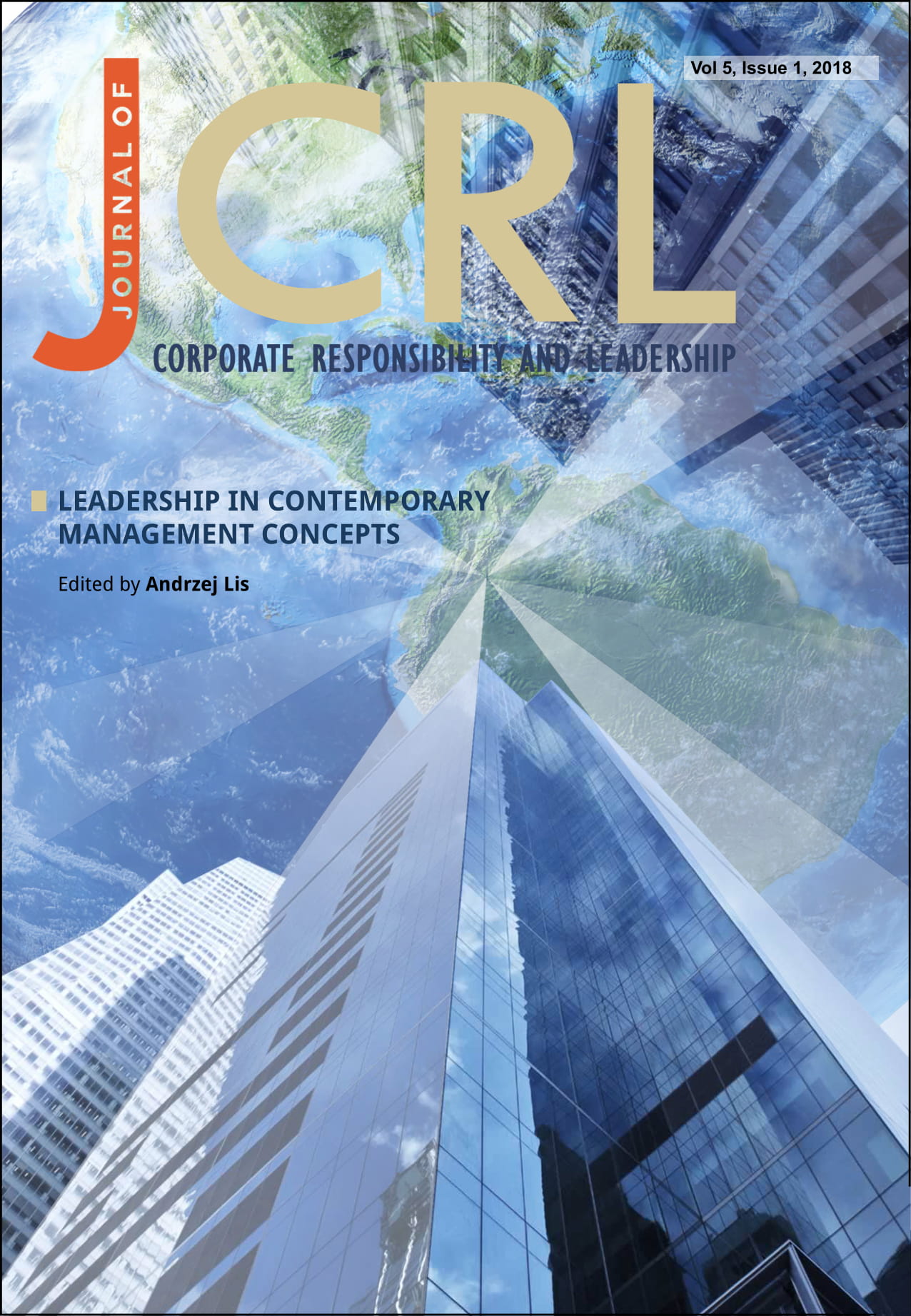Leadership Qualities in Project Management
DOI:
https://doi.org/10.12775/18713Schlagworte
leadership, manager, project managementAbstract
Purpose: The purpose of this paper is to present key features that each project manager should have. Furthermore, it describes main tasks performed by a manager in a project. An attempt is also made to resolve the dilemma whether every project manager can also be described as a leader.
Design/methodology/approach: This paper presents a theoretical approach. Analysis is conducted on the basis of literature review.
Findings: This article describes a number of features that a good project manager should have. It should be emphasized that leadership qualities are personality traits represented by project managers. It is worth noting that a leader may not be a manager, but every manager should be a leader. If a manager does not have leadership characteristics, the realization of the project’s tasks may be impaired. Certainly, this does not mean that the project will not be completed. However, better results are generally achieved by project teams, which are managed by people showing a high level of leadership qualities.
Research and practical limitations/implications: Conclusions drawn from the analysis can provide practical guidance to man-agers and project teams and make up a foundation for further empirical research.
Originality/value: The paper provides value for people involved in project management, both managers and project team members.
Paper type: Literature review.
Literaturhinweise
Barnes, A.C., Larcus, J. (2015), “Positive Psychology as a Framework for Leadership Development in Recreation and Sport”, New Directions for Student Leadership, Issue 147, pp. 77 – 87.
Cameron, K., Quinn, R.E, Calwell, C. (2017), “Positive Leadership and Adding Value – A Lifelong Journey”, International Journal of Public Leadership, Vol. 13, Issue 2, pp. 59 – 63.
Dvir, D., Sadeh, A., Malach-Pines A. (2006), “Projects and Project Managers: The Relationship between Project Managers’ Personality, Project Types, and Project Success”, Project Management Journal, Vol. 37, No. 5, pp. 36 – 48.
Ford, R.C., McLaughlin, F.S. (1992), “Successful Project Teams: A Study of MIS Managers”, IEEE Transactions on Engineering Management, Vol. 39, Issue 4, pp. 312 – 317.
Gosling, J., Mintzberg, H. (2003), “Five Minds of a Manager”, Harvard Business Review, Vol. 89, No. 11, pp. 54 – 63.
Harter, J., Rath, T. (2010), Well-being: The Five Essential Elements, Gallup Press, New York.
Huidan, L. (2008), “Selection of the Project Manager”, Bulletin of the Transilvania University of Brasov, Series I: Engineering Sciences, Vol. 1 (50), pp. 143 – 146.
Kahn, P. (2003), “The Leadership Journey”, Leader to Leader, Issue 29, pp. 7 – 11.
Kim, D.Y., Menches, C.L., O’Connor, J.T. (2015), “Stringing Construction Planning and Execution Tasks Together for Effective Project Management”, Journal of Management in Engineering, Vol. 31, Issue 3.
Kożusznik, B., Wpływ społeczny w organizacji, PWE, Warszawa 2005.
Lock, D. (2013), Project Management, Gower, Aldershot.
Obłój, K. (2001), Mikroszkółka zarządzania, PWE, Warszawa.
Pawlak, M. (2006), Zarządzanie projektami, PWN, Warszawa.
Prochazka, J., Vaculik, M., Smutny, P. (2017), “Transformational Leadership, Work Satisfaction and Group Performance: Mediation Analysis”, Proceedings of the European Conference on Management, Leadership & Governance. Retrieved from https://is.muni.cz/repo/1374411/Prochazka_2017_TL_satisfaction_twolevel. pdf (accessed 29 July 2017).
Ryan, R.K.C. (2008), Leadership Development: A Guide for HR and Training Profes-sionals, Elsevier, Oxford.
Selznick, P. (1957), Leadership in Administration: A Sociological Interpretation, Row, Peterson, Evanston.
Shaeffert, M. (2003), “What’s Leadership”, Twin City Business, Vol. 12, Issue 5, p. 41.
Shenhar, A.J., Dvir, D. (2008), Nowe spojrzenie na zarządzanie projektami, APN Prom-
ise, Warszawa.
Slevin, D.P., Pinto, J.K. (1991), “Project Leadership: Understanding and Consciously Choosing Your Style”, Project Management Journal, Vol. 22, Issue 1, pp. 29 – 47.
Spitzer, D. (2003), “The Energizing Leader”, Leader to Leader, Issue 29, pp. 22 – 27.
Sunindijo, R.Y. (2015), “Project Manager Skills for Improving Project Performance”, International Journal of Business Performance Management, Vol. 16, No. 1, pp. 67 – 83.
Szych, J. (2006), “Project Management – How to Organize a Project?”, Oracle, „PLOUG” Conference, Association of Polish Users of Oracle System - conference materials.
Trocki, M., Grucza, B., Ogonek, K. (2009), Zarządzanie projektami, PWE, Warszawa.
Vecchio, R.P., Justin, J.E., Pearce, C.L. (2008), “The Utility of Transactional and Trans-formational Leadership for Predicting Performance and Satisfaction within a Path-goal Theory Framework”, Journal of Occupational & Organizational Psychology,
Vol. 81, Issue 1, pp. 71 – 82.
Wysocki, R.K. (2013), Efektywne zarządzanie projektami: Tradycyjne, zwinne, ekstremalne, Wydawnictwo HELION, Gliwice.
Young, T.L. (2006), Skuteczne zarządzanie projektami, Wydawnictwo HELION, Gliwice.
Zaleznik, A. (2004), “Menedżerowie i liderzy: Czym różnią się od siebie?”, Harvard Business Review Polska, No. 16, pp. 106 – 115.
Downloads
Veröffentlicht
Zitationsvorschlag
Ausgabe
Rubrik
Stats
Number of views and downloads: 1390
Number of citations: 0



